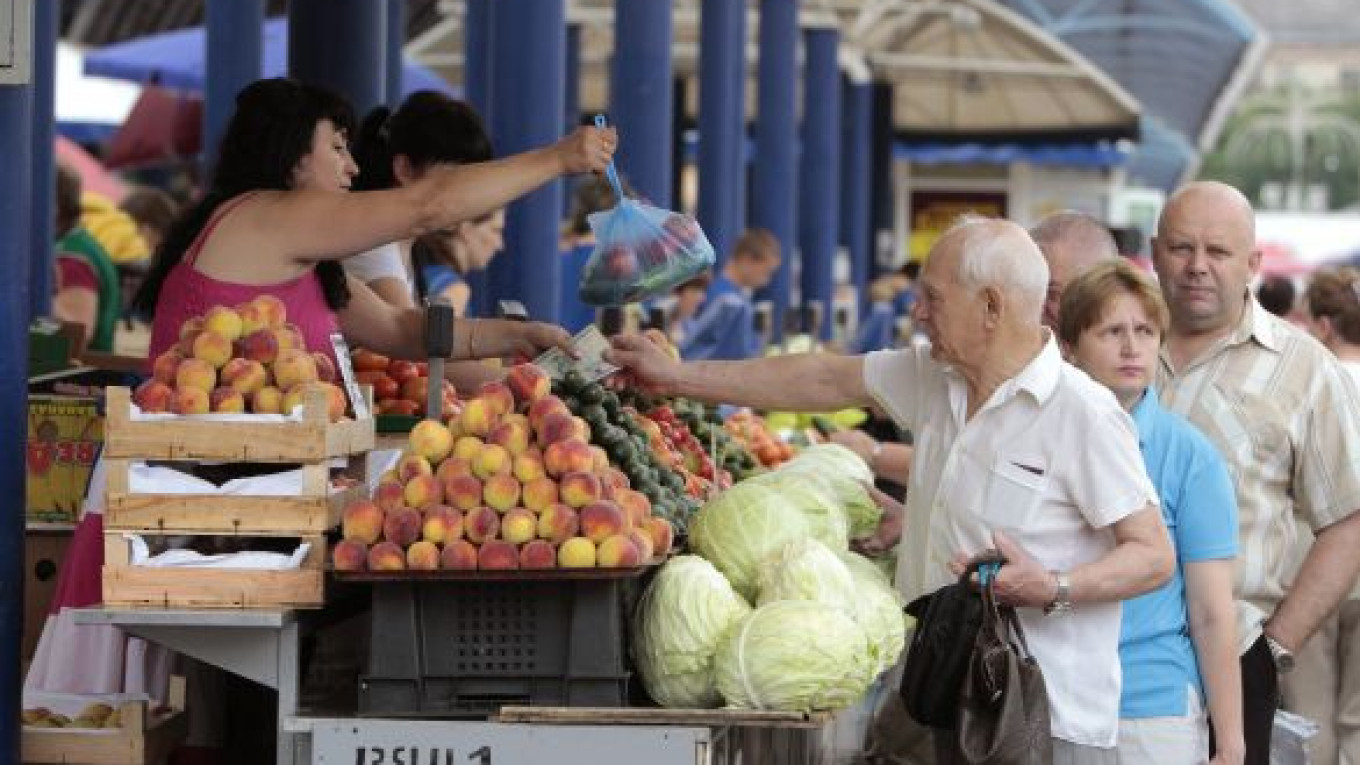MINSK — Belarussian President Alexander Lukashenko, in power since 1994, must find $3 billion by year-end to prop up his heavily indebted economy.
For many Belarussians, a financial crisis threatens a tough end of year in the shape of higher heating, public transport and education bills, possibly bringing wider social discontent.
A 36 percent devaluation of the Belarussian ruble has hit people’s savings. Hyperinflation of consumer goods is a constant threat. Key exporters are starved of the dollars they need to buy spare parts abroad to make their goods marketable.
There are signs of growing anger. Motorists noisily demonstrated on the border with Poland last month when they were restricted to taking only a limited amount of petrol out.
With the mainstream political opposition still in disarray after a police crackdown on Dec. 19 during Lukashenko’s re-election, young protesters have also emerged in Minsk and other towns to challenge his leadership.
Mobilizing support online through social networking sites, they are now holding weekly protests at which they stand and clap. Although their numbers are relatively small, police are turning out in force every week, arresting them in droves.
There is no sign yet that the industrial work force — which provides the bedrock of Lukashenko’s support among the people — is ready to side with the online protest movement.
But the general wisdom is that once the summer is over, Belarussians will meet mounting hardships and the mood could change.
“If he loses the workers, he is in deep trouble,” said Jaroslav Romanchuk, a Minsk-based dissident economist.
The writing has been on the wall for the Belarussian economic model since 2007, when Russia reduced annual subsidies of between $6 billion and $10 billion, mainly on supplies of oil and gas that kept it afloat.
Last year’s rises in public-sector pay, intended to meet a promised target of $500 for the average worker before Lukashenko went to the polls for re-election, were folly, economists say.
The result: Cash chased imports as exporters bought dollars to finance purchases abroad, sending the already high current account deficit yawning wider.
Russia, far and away Belarus’ biggest trading partner, is pressing Lukashenko more and more to end his aversion to privatizations and sell off some state assets.
Although it has backed a $3 billion bailout to Belarus over three years by the Moscow-led Eurasian Economic Community fund, Russia has made it conditional on privatizations by Belarus worth $7.5 billion.
Belarus, which faces some potentially difficult repayments next spring on a 2009 IMF loan, has turned to the fund again with a request for $3 billion to $8 billion of new credit.
Most observers believe the International Monetary Fund will eventually throw Belarus the lifeline it needs. “Privatization and a new program with the IMF seem to be the only possibilities. I think that eventually a combination of these two will need to materialize for a meaningful solution of the crisis,” said Ivan Tchakarov of Renaissance Capital.
The market is alive with talk of possible initial public offerings involving Belaruskali, the potash miner on which Lukashenko has set a value of $30 billion, and other key assets. But Romanchuk and others question whether Lukashenko is committed to a large-scale privatization program or IPOs.
“He’s trying to get as much as possible by giving as little as possible,” said one diplomat with several years’ experience tracking Belarus. He cautioned against assuming that Lukashenko could lose control even if the crisis worsened.
Lukashenko has the loyalty of the security forces, judging by the harsh crackdowns meted out to protesters, and he is a shrewd operator within the system he has created. “He will take care not to alienate the work force,” the diplomat said.
“Doomsday scenarios have been written many times here. They never take place. All I would say is that the situation is much less predictable now,” he said.
Belarus' gross domestic product came to 100.86 trillion Belarussian rubles ($202 billion) in real terms for January-June 2011, a year-on-year increase of 11 percent, the state statistics agency Belstat said Tuesday, Interfax reported.
Inflation in the six months came to 36.2 percent. Total industrial production in current prices for the first half came to 116.69 trillion Belarussian rubles. Retail turnover in the six months went up 17.8 percent to 42.82 trillion Belarussian rubles. GDP went up 7.6 percent in 2010 and 0.2 percent in 2009.
A Message from The Moscow Times:
Dear readers,
We are facing unprecedented challenges. Russia's Prosecutor General's Office has designated The Moscow Times as an "undesirable" organization, criminalizing our work and putting our staff at risk of prosecution. This follows our earlier unjust labeling as a "foreign agent."
These actions are direct attempts to silence independent journalism in Russia. The authorities claim our work "discredits the decisions of the Russian leadership." We see things differently: we strive to provide accurate, unbiased reporting on Russia.
We, the journalists of The Moscow Times, refuse to be silenced. But to continue our work, we need your help.
Your support, no matter how small, makes a world of difference. If you can, please support us monthly starting from just $2. It's quick to set up, and every contribution makes a significant impact.
By supporting The Moscow Times, you're defending open, independent journalism in the face of repression. Thank you for standing with us.
Remind me later.


